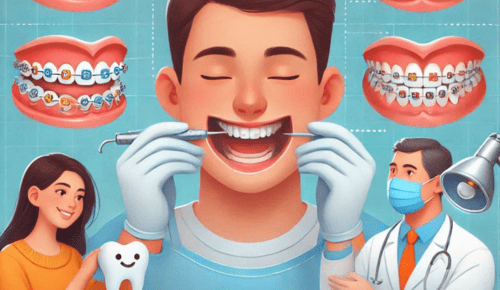A toothache can affect your mood, sleep cycle, eating habits, and overall health. Severe pain around your teeth might occur due to several reasons, including your oral health and hygiene. If you are a person who is going through a dental treatment like a root canal, tooth removal, or dental implant, then you might experience a toothache. However, if you are not undergoing any such treatments and are experiencing a toothache, especially at night, you should consider visiting your dentist.
In the meantime, you can use a saltwater rinse to soothe the pain or take any doctor-approved pain-relieving medicine. If the pain persists or worsens for more than two days, if your face has swollen due to the pain, if you are unable to chew your food properly, or if you are experiencing extreme pain, it may be a sign of an emergency. In that situation, you should visit your nearby dental practice in Weston, MA for a check-up.
What’s a toothache?
As the name suggests, a toothache is a condition where an individual experiences pain in or around their teeth. Studies have shown that a toothache is often the first sign that your teeth need a professional checkup and that there may be a dental issue. It can occur due to temporary gum irritation; for example, if you have weak teeth and poor gum health and indulge in coarse foods, a toothache might occur. In other cases, a toothache can result from cavities, broken teeth, missing teeth, trigeminal neuralgia, loose fillings, impacted teeth, gum infection, and other dental conditions that require immediate treatment, as they won’t improve on their own.
If someone has a toothache, they can drink peppermint tea, apply a chilled ice pack to the area, or use a saltwater rinse to relieve the pain.
Different Types of Toothaches
There are different types of tooth pain, depending on its underlying cause and severity. Although a slight ache might seem to be tolerable, it is not a good sign and indicates that something is wrong. By identifying the type of pain, one can figure out the root cause of the discomfort. Below are the most common types of tooth pain that should not be ignored:
- Throbbing pain
- Sensitivity
- Pain in the back of the mouth
- Sharp pain
- Pain while chewing and eating food
- Continuous, slight pain
- Sharp-drilling tooth pain
- Swelling in your gums or gum bleeding
- Bleeding and pain while brushing your teeth
- Tooth pain and headache
- Tooth pain accompanied by fever and chills
- Bad breath and bad taste
How to Deal with Tooth Pain
To get mild relief from your tooth pain, you can try several home remedies, including:
- Saltwater Rinse: Salt is a natural disinfectant that can help get rid of the active bacteria in your mouth, reduce inflammation around irritated gums, and heal wounds, providing relief from toothache pain. Mix ½ teaspoon of salt in 8 ounces of lukewarm water. Swish the mixture in your mouth for around 30 seconds and then spit it out. Repeat this a few times.
- Hydrogen Peroxide Rinse: If you have this solution at home, you can use it to ease your tooth pain, as it is good for reducing inflammation and healing irritated gums. Dilute the solution with an equal amount of water, swish it around your mouth for 30 seconds, and then rinse it out. Do not swallow the mixture.
- Ice Packs: Ice packs can help with tooth pain by reducing inflammation, swelling, and redness. Place frozen vegetables or ice cubes in a clean towel, wrap it up, and place it on the outside area of your jaw (pain area) for 15 to 20 minutes. You can repeat this multiple times a day.




